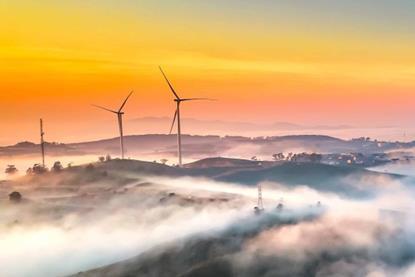Content (183)
-
White papers
Sustainable investing in 2026: The continuing path to a more resilient future
Recent years have seen investors operate in an environment shaped by conflicts, inflationary pressures, extreme weather events, and growing digital disruption. These events, coupled with the longer-term sustainability themes shaping our decade – climate change, biodiversity loss, and rising inequality – are redefining risks in capital markets and placing long-term investment resilience under scrutiny.
-
White papers
Global pension trends: What to expect in 2026
The world’s pension assets are concentrated in 22 major markets and total some US$58.5trn, as at the end of 2024, with the US accounting for 65%. In all, the top seven markets – the US, UK, Japan, Netherlands, Switzerland, Australia, and Canada - account for US$53.5trn.
-
White papers
Insurance outlook: Managing change is business as usual
We live in a fast-changing world, where organisations need to adapt in order to thrive – and this is especially true for insurance companies. Insurers are impacted by economic cycles and fundamentals, but unlike many other sectors, they must also navigate financial market risks and ongoing developments in regulatory frameworks. In the current fluid environment, agility and risk management are key.
-
White papers
Outlook 2026: Core investment implications
While the global economy demonstrated remarkable resilience in 2025, the true impact of US tariffs – one of the year’s dominant stories - remains uncertain. However, the International Monetary Fund has raised its 2025 global growth forecast to 3.2% from the 3.0% it projected in July and has kept its 2026 estimate at 3.1%.
-
White papers
Market Outlook - Fixed income: Monetary policy should bolster markets
Fixed income markets should benefit from continued central bank easing in 2026. We expect lower interest rates in the US as policymakers respond to weaker labour market trends, and lower rates in Europe because of further declines in inflation.
-
White papers
Fixed Income Outlook: Why flexibility will be key for fixed income investors in 2026
Despite no shortage of challenges and obstacles, returns across fixed income asset classes have been largely positive in 2025, with income levels a major contributing factor.
-
White papers
European equities - European strategic autonomy: A long-term investment opportunity
Europe is deepening its quest for strategic autonomy. What began as a post-pandemic policy slogan has evolved into a financial reality, with tangible investment implications – Europe now allocates billions annually to defence, industrial resilience, and key technology sectors.
-
White papers
US equities - Artificial intelligence: Not a bubble… yet
Artificial intelligence (AI) is the most impactful digital transformation theme since the development of the Internet.
-
White papers
Macroeconomic outlook: Surprisingly resilient
The global economy has proved surprisingly resilient in 2025. In the immediate aftermath of Liberation Day, the IMF forecast that the global economy would grow by 2.8% in 2025. It now expects global growth of 3.2% this year.
-
White papers
Market Outlook - Global equities: The great divide
US equity market returns are likely to continue diverging along the lines of technology and the rest of the market: the Nasdaq 100 index delivered a 50% return from the post-Liberation Day lows to the end of October while the Russell 1000 Value index rose by less than half that. That outperformance continues a long-running trend.
-
White papers
Can Europe step into Uncle Sam’s shoes?
Europe has always been seen as the little cousin to the US. This year, however, Europe’s profile from an investment perspective has grown as the US’ reputation of a choice of stability and reliability has taken a nose-dive.
-
White papers
Euro credit sectors offer opportunities despite market volatility
Despite facing multiple episodes of volatility in recent years, the euro credit market has demonstrated notable resilience, consistently delivering solid returns to investors.
















